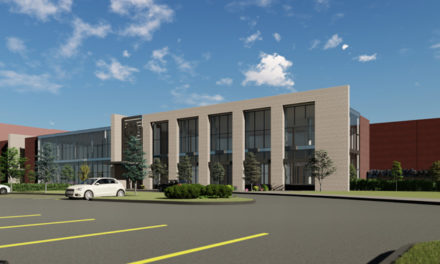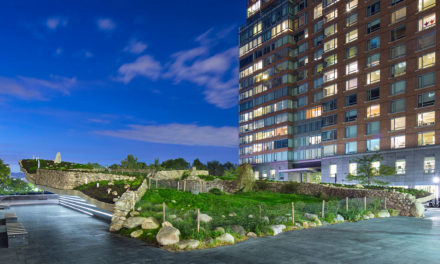Located on a prominent site along the East River, against the backdrop of rapidly built skyscraper condominiums, the 22,000 square foot Queens Public Library at Hunters Point stands as a public building and public park, bringing community-devoted space to the Long Island City waterfront.
Resisting recent trends of incorporating public libraries and much-needed social space within high end residential towers, the Hunters Point Library stands independently, rising with a minimal footprint on its 32,000 square foot site to offer maximum surrounding green space to the local community and becoming an integrated part of the vibrant public park that lines the river’s edge.
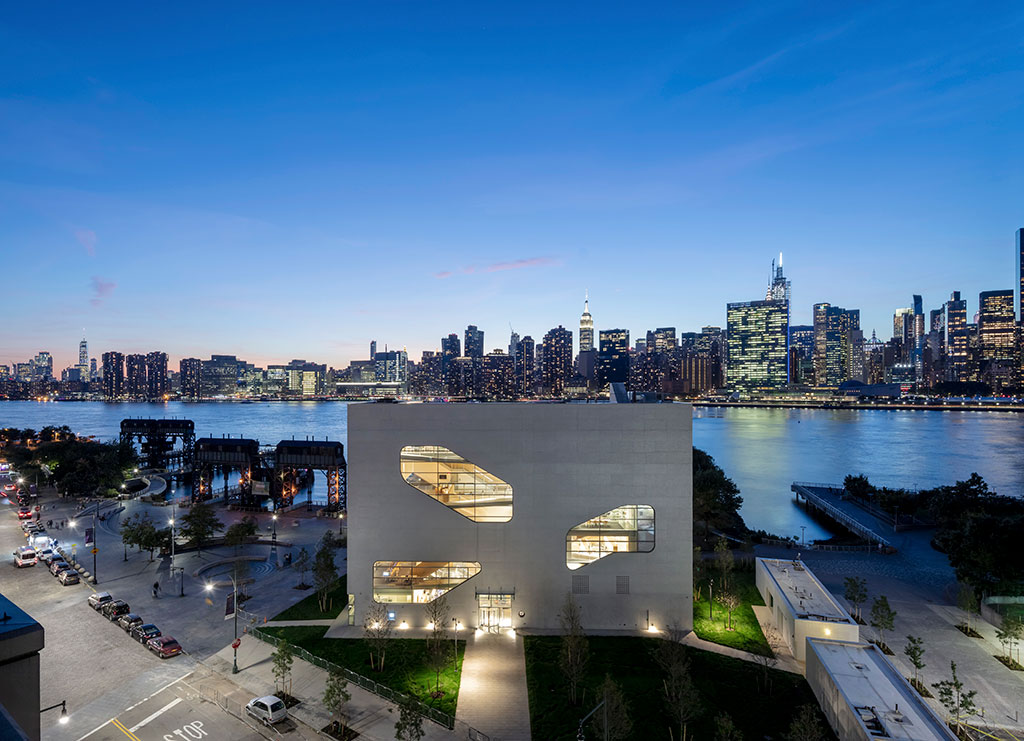
Photo credit: © Paul Warchol
The vertical structure re-imagines the traditional library model, providing diversity of spaces from intimate reading areas to active gathering spaces. The building’s aluminum-painted concrete shell is not just a facade but a load-bearing structure, which omits curtain walls and columns. Sculpted cuts are carved out of the facade, showing the movement of people within and framing expansive views of the Manhattan skyline.
The program’s separation into children’s area, teen area and adult area can be read in the sculpted cuts of the east face of the building, one facade opening for each area; yet the programmatic divisions are fluid. Inside, warm bamboo creates an inviting social space, open to the community and offering engaging spaces for all ages. Natural light enters through the large windows from all sides, animating the space.
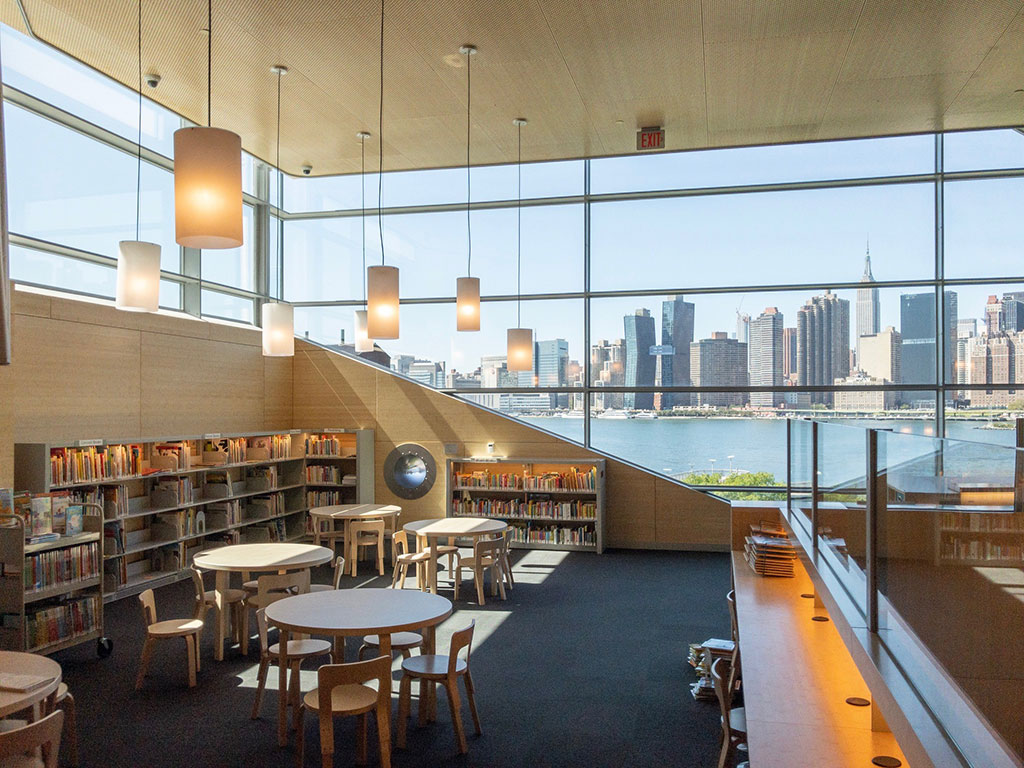
The interior of the Hunters Point Library includes bamboo cladding. Photo courtesy of Steven Holl Architects
The digital and the book are merged through the bookshelves and adjacent digital workstations that flow upward along a series of open stairs. A ground-level auditorium under the main section provides public meeting and events space. The stairs switch back from mezzanine to mezzanine, connecting reading areas and concluding in a rooftop reading terrace with views of the city and the river.
While the plan is compact, the building section of the new library is open and flowing to allow for the most energy-efficient design and the greatest amount of public green space on the site.
On the east entrance side, the library faces a reading garden bordered by a low park office pavilion with a bosque of ginkgo trees.
At night the glowing presence of the Hunters Point Library along the waterfront joins the Pepsi sign and the “Long Island” sign at the old Gantry to become a beacon for this new community place.
The Facts
Construction period: May 2015 – September 2019
Building area (square): 22,000 SF
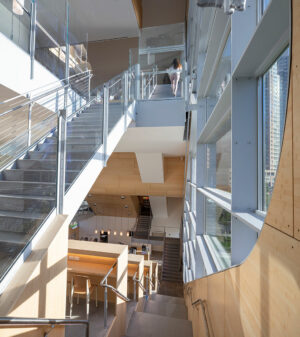
Photo credit: © Paul Warchol
Program:
• Public meeting room for 140 people
• Children’s reading and activity area
• Adult reading area and quiet room
• Cyber center
• Teen reading area
• Library back-off-house: re-circulation spaces and staff offices
• Café and roof terrace
• Park ranger station (1,500 SF separate structure)
Project type: Commission
Structure: Cast in place concrete shell with steel framed floors, concrete on metal deck
Major materials: Exposed exterior concrete, painted silver; interior bamboo cladding
Mechanical systems: air cooled chillers, roof; gas fired condensing boilers
Credits
Client: Queens Public Library; New York City Department of Design and Construction
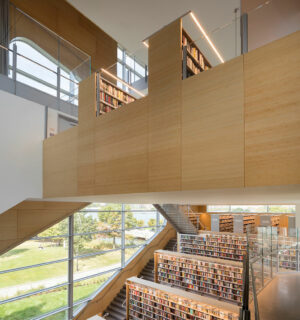
Photo credit: © Paul Warchol
Architect: Steven Holl Architects
• Steven Holl (design architect, principal)
• Chris McVoy (senior partner in charge)
• Olaf Schmidt (senior associate in charge)
• Filipe Taboada (project architect, associate)
• Suk Lee (project architect CA)
• Bell Ying Yi Cai, Rychiee Espinosa, JongSeo Lee, Maki Matsubayashi, Michael Rusch, Dominik Sigg, Yasmin Vobis, Jeanne Wellinger (project team)
Landscape architect: Michael Van Valkenburgh and Associates
Structural engineer: Silman
MEP engineer: ICOR Associates
Lighting design: L’Observatoire International
LEED consultant: ADS Engineers
Civil engineer: Langan Engineering & Environmental Services
Fire technical consultant: Rolf Jensen & Assoc.
Cost estimator: Davis Langdon
Specifications: Construction Specifications Inc.
Climate engineers: Transsolar


